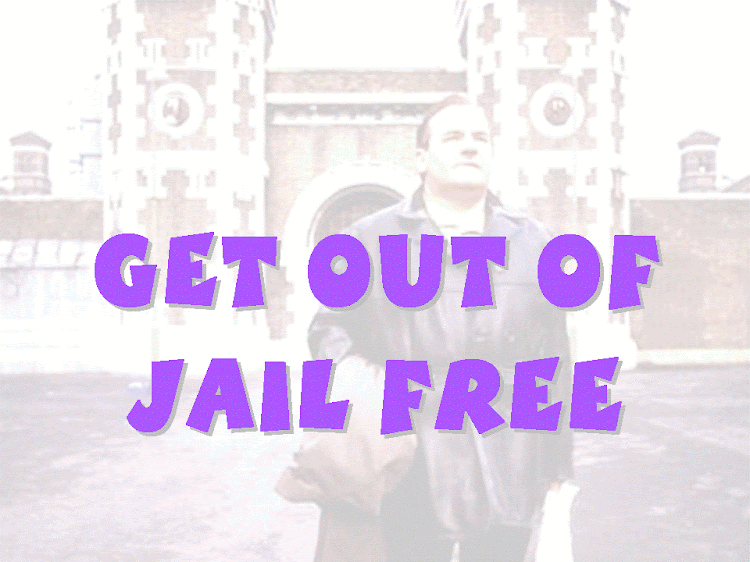 I'm preaching this coming Sunday, as the minister of the church in question is out of the country. I was asked to pick a "rousing" hymn to start - one that would sound good on the organ. Since I don't know this particular congregation's repertoire of modern hymns, I thought I'd go for an old faithful, and what better than "Oh for a thousand tongues.."? That's a rhetorical question, folks. I'm not looking for the definitive answer.
I'm preaching this coming Sunday, as the minister of the church in question is out of the country. I was asked to pick a "rousing" hymn to start - one that would sound good on the organ. Since I don't know this particular congregation's repertoire of modern hymns, I thought I'd go for an old faithful, and what better than "Oh for a thousand tongues.."? That's a rhetorical question, folks. I'm not looking for the definitive answer. Although there are others, this is the tune that's been traditionally popular in Scottish churches for this hymn, providing the congregations are big enough to handle dividing into two parts.
Anyway, I went on t'internet to check the words and discovered something I didn't know about this hymn. I grew up with it. It's been a staple part of most Scottish churches' repertoires (I can't speak for other countries), and even with the arrival of an abundance of modern hymns, it's never been dropped. I knew it was written by Charles Wesley (pictured). It was published in 1740, and apparently he wrote it to commemorate the first anniversary of his conversion to Christ. The stanza that begins “O for a thousand tongues to sing” (now our first line) is actually verse seven of Wesley’s original poem. Most churches would probably sing the first six verses below. What I hadn't realised was that the original poem had eighteen verses! I'll not be suggesting we sing all eighteen on Sunday, but I thought I'd cut and paste and post them here. Incidentally, it's not just fear of running out of breath or time that puts me off having all eighteen verses. You may see why:
O for a thousand tongues to sing
My great Redeemer’s praise,
The glories of my God and King,
The triumphs of His grace!
My gracious Master and my God,
Assist me to proclaim,
To spread through all the earth abroad
The honors of Thy name.
Jesus! the name that charms our fears,
That bids our sorrows cease;
’Tis music in the sinner’s ears,
’Tis life, and health, and peace.
He breaks the power of canceled sin,
He sets the prisoner free;
His blood can make the foulest clean,
His blood availed for me.
He speaks, and, listening to His voice,
New life the dead receive,
The mournful, broken hearts rejoice,
The humble poor believe.
Hear Him, ye deaf; His praise, ye dumb,
Your loosened tongues employ;
Ye blind, behold your Savior come,
And leap, ye lame, for joy.
In Christ your Head, you then shall know,
Shall feel your sins forgiven;
Anticipate your heaven below,
And own that love is heaven.
Glory to God, and praise and love
Be ever, ever given,
By saints below and saints above,
The church in earth and heaven.
On this glad day the glorious Sun
Of Righteousness arose;
On my benighted soul He shone
And filled it with repose.
Sudden expired the legal strife,
’Twas then I ceased to grieve;
My second, real, living life
I then began to live.
Then with my heart I first believed,
Believed with faith divine,
Power with the Holy Ghost received
To call the Savior mine.
I felt my Lord’s atoning blood
Close to my soul applied;
Me, me He loved, the Son of God,
For me, for me He died!
I found and owned His promise true,
Ascertained of my part,
My pardon passed in heaven I knew
When written on my heart.
Look unto Him, ye nations, own
Your God, ye fallen race;
Look, and be saved through faith alone,
Be justified by grace.
See all your sins on Jesus laid:
The Lamb of God was slain,
His soul was once an offering made
For every soul of man.
Awake from guilty nature’s sleep,
And Christ shall give you light,
Cast all your sins into the deep,
And wash the Æthiop white.
Harlots and publicans and thieves
In holy triumph join!
Saved is the sinner that believes
From crimes as great as mine.
Murderers and all ye hellish crew
In holy triumph join!
Believe the Savior died for you;
For me the Savior died.
With me, your chief, ye then shall know,
Shall feel your sins forgiven;
Anticipate your heaven below,
And own that love is heaven.
Singing "Cast all your sins into the deep, and wash the Æthiop white" wouldn't be such a good plan today. I was really shocked when I read that line, although having checked out some other stuff on t'internet, it seems as though the original intent wasn't as racist as it sounds. It was perhaps just talking about the apparently impossible being possible, and the change being as dramatic as that, rather than the implication being that the black skin of the Ethiopian was an indicator of moral inferiority. Whatever the case, I won't be putting it on the screen for singing on Sunday.
"Harlots and publicans and thieves in holy triumph join! Saved is the sinner that believes from crimes as great as mine. Murderers and all ye hellish crew in holy triumph join! Believe the Savior died for you; For me the Savior died". (It's interesting that publicans are included with the others as if on a par). I can't imagine our modern day congregations singing those words either! I've got to admit though, that I secretly quite like them. As someone who works with thieves and murderers, and some sons and brothers and partners of "harlots", I am all in favour of them being invited to join in holy triumph as forgiven sinners with the rest of us non-harlots/non-murderers/non-thieves. Good for Wesley.




































